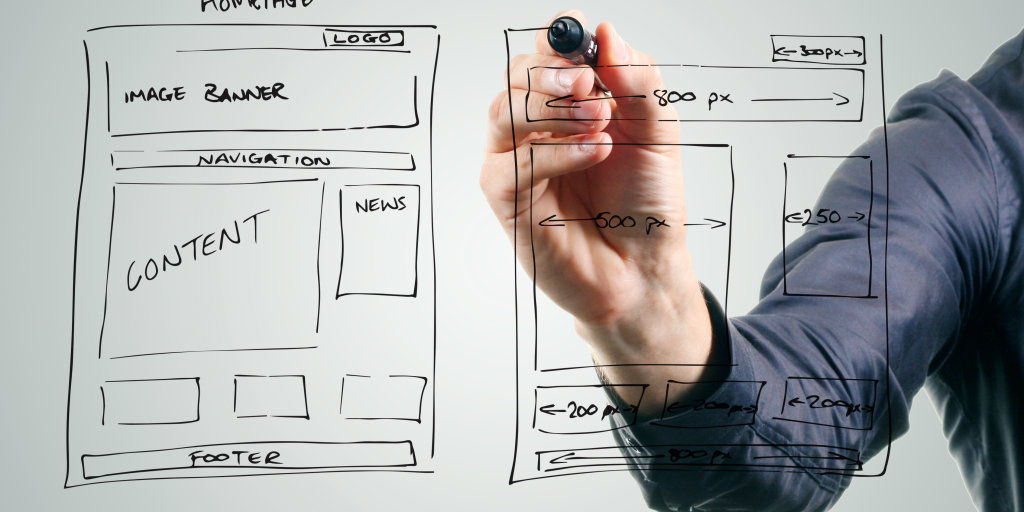Planning and hosting successful events is a powerful way to engage your audience, build connections, and generate leads. Whether you are planning a conference, seminar, or trade show, the process involves meticulous planning and execution. At Resonate, we understand the importance of events in driving growth and creating lasting impressions.
In this blog, I will take you through a comprehensive event planning checklist, offering insights, tips, and best practices to make your next event successful.
Event planning can seem daunting, but with a structured approach, you can create memorable customer experiences. From setting clear objectives to post-event follow-up, I will break down each step of the process to help you navigate the process with ease.
1. Pre-Planning and Initial Steps
1.1 Set Objectives
Before you immerse yourself in the intricate logistics of event planning, take a step back to define your event’s purpose. It is essential to have a clear vision of what success means for your event.
Consider the following key performance indicators:
- Enrolment Goal: How many attendees are you aiming to register for your event?
- Attendance Goal: What level of attendance do you expect on the day of the event?
- Meetings Goal: How many meaningful interactions or meetings do you intend to facilitate?
- Opportunities Goal: What opportunities do you hope to create for your attendees and sponsors?
- Revenue Goal: What is the financial benchmark for your event?
Defining these objectives will provide you with a roadmap to measure the success of your event and keep your team aligned with common goals.
1.2 Data Collection and Analysis
In the age of data-driven decision-making, gathering relevant data is paramount. By analysing data, you can make informed choices that enhance the overall event experience.
Here are some key areas to focus on:
- Attendee Demographics: Understand your audience by collecting data on their demographics. This information helps tailor your event to their preferences and needs.
- Industry Trends: Stay updated with the latest trends in your industry. Incorporate these trends into your event to make it relevant and engaging.
- Past Event Data: Review data from previous events to identify what worked and what did not work. This will allow you to refine your approach and avoid repeating past mistakes.
Data-driven insights are invaluable for creating an event that resonates with your target audience and stays ahead of industry trends.
1.3 Budgeting and Financial Planning
A well-thought-out budget is the financial backbone of your event. It ensures that your event remains financially viable and helps you allocate resources where they matter most.
When creating your budget, consider the following aspects:
- Venue Costs: Account for venue expenses, including rental fees, audiovisual equipment, and catering.
- Marketing and Promotion: Allocate funds for marketing strategies that will create a buzz around your event.
- Speaker and Guest Expenses: Factor in expenses related to inviting and hosting influential speakers, panellists, and special guests.
- Logistics and Operations: Include costs for transportation, accommodations, seating arrangements, and technical setup.
- Data Security and Privacy Compliance: Budget for ensuring compliance with data security and privacy regulations.
By developing a comprehensive budget, you will not only manage your finances effectively but also gain a clear understanding of where to allocate your resources.
1.4 Speaker and Guest Management
A lineup of high-profile speakers and guests can add immense value to your event. It is essential to identify and invite individuals who resonate with your event’s theme and goals.
Here is how to manage this aspect effectively:
- Identify Influential Figures: Identify speakers, panellists, or special guests who can bring expertise and credibility to your event.
- Invitations and Confirmations: Reach out to these individuals well in advance, extend invitations, and secure their participation.
- Speaker Preparation: Ensure your speakers are well-prepared and understand the event’s objectives.
Having the right speakers and guests can significantly impact the quality and success of your event.
1.5 Partnerships and Sponsors
Collaborations with partners and sponsors can be significant for your event. They not only enhance the reach of your event but also lend credibility and financial support.
Here is how to make the most of partnerships and sponsors:
- Identify Potential Partners and Sponsors: Seek out organisations or businesses that align with your event’s goals and target audience.
- Proposal and Agreements: Create compelling proposals and negotiate agreements with potential partners and sponsors.
- Leverage Resources: Utilise the resources, networks, and expertise of your partners and sponsors to enhance the event experience.
Partnerships and sponsorships can open doors to new opportunities, increase event attendance, and elevate the overall quality of your B2B event.

2. Marketing and Promotion
Once you have laid the groundwork in the pre-planning phase, it is time to shift your focus to marketing and promotion. This is where you create the buzz, engage your target audience, and build anticipation for your B2B event.
2.1 Event Branding and Messaging
The essence of your event is encapsulated in its branding and messaging. It is crucial to craft a compelling brand identity that resonates with your target audience.
Here is how to go about it:
- Understand Your Audience: Begin by gaining a deep understanding of your target audience. What are their pain points, desires, and expectations from your event?
- Brand Identity: Develop a brand identity that reflects the essence of your event. This includes your event’s name, logo, colour scheme, and overall visual aesthetics.
- Messaging: Craft a message that clearly communicates the value and uniqueness of your event. What problems will it solve, and how will it benefit attendees?
A strong brand identity and a compelling message set the stage for effective event promotion.
2.2 Social Media Strategy
Social media is a potent tool for generating excitement and engaging your audience.
Consider these strategies for an effective social media approach:
- Choose the Right Platforms: Identify the social media platforms most frequented by your target audience and focus your efforts there.
- Content Calendar: Create a content calendar to plan and schedule your posts leading up to the event. This ensures a consistent online presence.
- Engagement and Interactivity: Encourage interaction with your audience through polls, contests, and Q&A sessions. Respond promptly to comments and messages.
- Use Hashtags: Create a unique event hashtag to make your event more discoverable and to foster a sense of community among attendees.
By leveraging the power of social media, you can build excitement, drive registration, and foster a sense of community around your event.
2.3 Content Creation
High-quality content is at the heart of any successful event marketing strategy.
To create a buzz and engage your audience effectively, consider the following:
- Blogs: Develop informative and engaging blog posts that showcase your expertise and provide valuable insights related to your event’s theme.
- Interviews and Videos: Create video content, including interviews with speakers, behind-the-scenes glimpses, and promotional videos.
- Collaboration with Partners and Sponsors: Collaborate with partners and sponsors to cross-promote your content on their social channels, widening your reach.
Well-crafted content not only attracts attendees but also positions your event as a valuable resource within your industry.
2.4 Utilise Sales Development Representatives
Your sales team can play a pivotal role in event promotion. Their personalised outreach can make a significant impact. Here’s how to utilise them effectively:
- Identify Target Audience: Work with your sales team to identify the specific individuals or companies that would benefit most from attending your event.
- Direct Calls: Empower your sales development representatives to make direct calls to these prospects. Personalised invitations and conversations can be highly persuasive.
The human touch in outreach can make a considerable difference, especially when coupled with a well-defined event value proposition.
2.5 PR Strategy
Exploring opportunities for event promotion through partner organisations and the media is a valuable avenue. Consider these steps:
- Partner Collaborations: Leverage your partnerships and sponsorships to expand your reach. Work with partners to co-promote the event to their audiences.
- Media Engagement: Explore possibilities for media coverage. Reach out to industry publications, local media, and relevant journalists to generate interest and coverage.
A well-executed PR strategy can elevate your event’s visibility and credibility in your industry.
By effectively implementing these marketing and promotion strategies, you will not only create anticipation for your B2B event but also maximise its impact.

3. Registration and Participation
As your B2B event gains momentum through effective marketing and promotion, it is time to focus on ensuring a seamless registration process and enhancing the experience for your attendees.
3.1 Event Website Creation and Registration Setup
A well-designed event website is the central hub for your attendees to access information, register, and engage with your event.
Here is how to make the most of your event website:
- User-Friendly Design: Create a user-friendly, responsive website with easy navigation and a pleasing visual experience.
- Registration Forms: Develop clear and concise registration forms that collect essential attendee information. Make the process as straightforward as possible.
- FAQs: Include an FAQ section on the website to address common queries and provide clarity to potential attendees.
- Essential Information: Display all necessary event details, including the agenda, speaker profiles, venue information, and contact details.
An intuitive event website makes the registration process convenient and sets the stage for a positive attendee experience.
3.2 VIP and Customer Appreciation Experiences
Recognising the value of your key clients and partners is essential for building solid relationships and enhancing their event experience.
Here is how to plan exclusive experiences for them:
- Tailored Experiences: Offer special sessions, workshops, or networking opportunities exclusively for VIPs and key clients.
- Personalised Communication: Communicate directly with these individuals to ensure they are aware of and can take full advantage of these exclusive experiences.
By providing unique experiences, you not only show appreciation for your most valued attendees but also strengthen your business relationships.
3.3 Media Engagement Planning
Media coverage can significantly boost the visibility and credibility of your event.
Here is how to plan for media engagement:
- Media Invitations: Identify relevant media representatives, including journalists, bloggers, and influencers, and extend invitations to cover your event.
- Media Center: Set up a designated area for media personnel with resources like press releases, event materials, and interview opportunities.
- Press Releases: Prepare and distribute press releases highlighting key aspects of your event and its significance in your industry.
Media engagement adds an extra layer of exposure and legitimacy to your event, making it more appealing to potential attendees.
With a well-designed event website, VIP and customer appreciation experiences, and a strategic media engagement plan, you’ll not only streamline the registration process but also create a more enriching and well-covered event.

4. Logistics and Operations
The success of your B2B event not only relies on meticulous planning but also on the smooth execution of logistics and operations. This phase ensures that all aspects of your event, from venue selection to data security, are well-organised.
Let’s explore these key components in detail:
4.1 Venue Selection and Logistics
Selecting the right venue is crucial to creating the right atmosphere for your event.
Here is how to make a wise choice and ensure all logistics are in order:
- Venue Selection: Choose a venue that aligns with the scale and theme of your event. Consider factors like location, capacity, and facilities.
- Logistics Coordination: Ensure all logistics, including transportation, seating arrangements, and catering, are meticulously organised. Collaborate with vendors and service providers to guarantee a seamless event.
The right venue and well-organised logistics contribute to a positive overall event experience for attendees.
4.2 Technology and AV Setup
Technology plays a pivotal role in event success.
To ensure a seamless experience, test and prepare the following technical aspects:
- Audiovisual Equipment: Verify that all audiovisual equipment, including microphones, projectors, screens, and lighting, is in working order.
- Live-Streaming Capabilities: If your event involves remote participation, test and ensure the reliability of your live-streaming setup.
Smooth technology and AV setup ensure that presentations and interactions are hassle-free, both for on-site and remote attendees.
4.3 Data Security and Privacy Implementation
Protecting your attendees’ information is not just a best practice; it’s often a legal requirement.
Ensure that you comply with data security and privacy regulations:
- Data Privacy Compliance: Familiarise yourself with relevant data privacy regulations, such as GDPR or CCPA, and ensure that you handle attendee data in a compliant manner.
- Data Protection Measures: Implement data protection measures, such as encryption and secure storage, to safeguard sensitive information collected during registration.
Prioritising data security and privacy instills trust and confidence among your attendees, assuring them that their information is handled with care.
4.4 Accessibility and Inclusivity Considerations
Creating an inclusive and accessible event environment is not only ethically important but also legally required in many regions.
Here is how to ensure inclusivity:
- Accessibility Accommodations: Provide accommodations, such as ramps, braille materials, and sign language interpreters, for attendees with disabilities.
- Inclusive Planning: Ensure that event materials, presentations, and activities are designed to be inclusive for all attendees, regardless of their abilities.
Prioritising accessibility and inclusivity ensures all attendees can participate and enjoy your event, fostering a positive and diverse atmosphere. With meticulous venue selection, seamless technology setup, data security and privacy implementation, and a commitment to accessibility and inclusivity, you will have the operational aspects of your B2B event well in hand.

5. Event Execution
Event execution is where all your preparation culminates into an experience that will leave a lasting impression on your attendees. Here are the key aspects to focus on during this critical phase:
5.1 Event Day Operations
Efficiently managing on-site operations is essential for creating a positive impression and ensuring a smooth experience for your attendees.
Here’s how to make the most of this crucial period:
- On-Site Coordination: Ensure all teams and staff members are well-coordinated and understand their roles and responsibilities for the day.
- Registration and Check-In: Streamline the registration process to minimise wait times and make a positive first impression on your attendees.
- Attendee Experience: Pay close attention to the overall experience, including signage, wayfinding, and on-site support to address any questions or concerns.
Efficient event day operations contribute to a seamless and enjoyable event for all participants.
5.2 Remote Participation and Livestreaming
It is vital to facilitate remote participant engagement. If applicable, offer live streaming and virtual interactions to enhance the event experience for those unable to attend in person:
- Live Streaming Setup: Ensure that the live streaming equipment functions correctly and that the virtual platform is user-friendly.
- Virtual Interaction Opportunities: Provide remote participants with opportunities to engage with on-site attendees, such as Q&A sessions or virtual networking.
- Technical Support: Have a technical support team available to assist remote attendees with any issues they may encounter during the event.
By embracing remote participation and live streaming, you can extend your event’s reach, engage a broader audience, and adapt to the evolving landscape of B2B events. Effective event execution involves careful planning, attention to detail, and the ability to adapt to unforeseen circumstances. By efficiently managing on-site operations and facilitating remote participation, you’ll create a memorable and inclusive event experience.

6. Post-Event
The successful execution of your B2B event is just the beginning. In the post-event phase, you have the opportunity to build on the momentum generated during the event and set the stage for future successes.
6.1 Post-Event Follow-Up and Thank-You Notes
The connections and relationships forged during your event are valuable assets. Show appreciation for your attendees, speakers, sponsors, and partners by sending personalised thank-you notes.
Here is how to follow up effectively:
- Attendees: Reach out to your attendees with a genuine thank-you for their participation. Express your gratitude for their contribution to the event’s success.
- Speakers: Extend your thanks to the speakers and panellists for sharing their insights and expertise.
- Sponsors and Partners: Acknowledge the support of your sponsors and partners and express your commitment to future collaborations.
Personalised thank-you notes strengthen the relationships and goodwill established during the event.
6.2 Post-Event Content Strategy Implementation
Your event was a goldmine of content. Do not let it go to waste. Repurpose event content to extract maximum value and extend its reach.
Consider the following content strategies:
- Blog Posts: Convert event highlights, key takeaways, and insights into blog posts that provide ongoing value to your audience.
- Webinars: Transform event sessions into webinars that can be offered as on-demand content for those who missed the event.
- Other Formats: Consider turning presentations into whitepapers, infographics, or video content to appeal to different audience preferences.
By repurposing event content, you maximise the event’s impact and extend its value long after the event has concluded.
6.3 Continuous Improvement and Feedback Loop
Reflection and improvement are key to the ongoing success of your B2B event initiatives. Use the post-event phase to collect feedback, analyse data, and identify areas for improvement.
Here is how to approach the improvement process:
- Attendee Feedback: Solicit feedback from attendees to understand what worked well and where improvements can be made.
- Data Analysis: Analyse event data, including attendance numbers, engagement metrics, and revenue generated.
- Identify Improvement Areas: Based on feedback and data, pinpoint areas where enhancements can be made in future events.
Continuous improvement ensures that each successive event is more successful and resonates even more with your audience.
By sending personalised thank-you notes, repurposing event content, and focusing on continuous improvement, you will extend the life and impact of your B2B event. This final phase of your event planning journey sets the stage for future successes and a lasting positive impression on your customers.

Conclusion
Successful event planning is a multifaceted process that demands meticulous pre-planning, effective marketing and promotion, streamlined registration, seamless execution, and thoughtful post-event follow-up. Setting clear objectives, leveraging data-driven insights, creating a well-defined budget, and cultivating partnerships are essential for laying the groundwork. Building anticipation through branding, social media engagement, and content creation is pivotal, while the registration phase must prioritise user-friendly websites and exclusive experiences. The operational aspects, including venue selection, technology setup, data security, and inclusivity considerations, form the backbone of event execution. Lastly, continuous improvement, content repurposing, and personalised post-event follow-up are crucial to extending an event’s impact and ensuring a lasting positive impression. With these steps and best practices, event planners can navigate the complexity of their roles and deliver remarkable, growth-driven experiences.
Elevate your next B2B event with Resonate
At Resonate, we specialise in crafting successful B2B events. Our expertise ensures that every aspect, from meticulous planning to seamless execution, is designed to help you meet your commercial goals. Explore our Event Planning Services to learn more about how we can help you achieve event success.
Related Blogs
The B2B Conference Conundrum: How to stand out from the crowd at events.
Are your organisation’s events yielding a commercial return?
Ten benefits of hosting a Virtual Event for your B2B organisation




